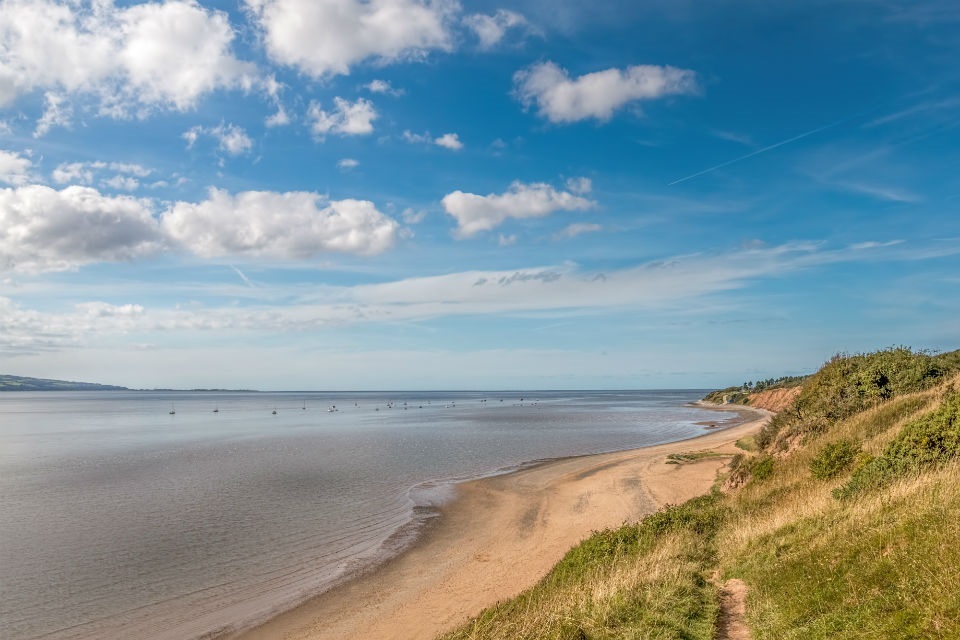
Marine Management Organisation seeks evidence and views on new protections for English marine sites
Published By GOV.UK [English], Tue, Oct 27, 2020 6:15 PM
England’s seas and marine wildlife could benefit from better protection and management as the Marine Management Organisation launches a call for evidence on proposals for managing five of England’s Marine Protected Areas.
The sites which could be further protected include The Canyons, a deep-sea habitat which harbours cold water corals, and Dogger Bank, the largest shallow sandbank in British waters, which are home to species such as sand eels, the favourite food of puffins and porpoises.
The Government plans to use the powers in the Fisheries Bill to put any new measures in place after the UK leaves the transition period.
Environment Secretary, George Eustice said:
The UK is already leading the rest of the world by protecting over 30% of our waters - but we know there is more to do to allow our seas to fully recover.
Leaving the EU means we can introduce stronger measures and the Fisheries Bill proposes new powers to better manage and control our Marine Protected Areas.
This call for evidence represents the next step in that journey, ensuring our marine life can recover and thrive.
To date around 40% of England’s seas have been designated for protection and management measures have already been introduced in many inshore sites, through byelaws introduced by both Marine Management Organisation and the Inshore Fisheries and Conservation Authorities.
The Marine Management Organisation is now seeking additional evidence and views on the draft assessments of four priority offshore and one inshore Marine Protected Areas.
Tom McCormack, Chief Executive Officer of MMO, said:
Our purpose is to protect and enhance our precious marine environment and support UK economic growth.
We enable sustainable marine activities, such as fisheries or renewable energy, to co-exist with other users of the seas, while still protecting our precious marine environment for the benefit of future generations.
This call for evidence to support new management proposals for these five areas signals our commitment to better protect and manage our seas and coasts.
We are looking forward to engaging with our stakeholders, so that together we can create ‘win-win’ outcomes for the benefit of the environment, people and the economy, now and for the future.
This new ‘call for evidence’ relating to five sites is the first, informal stage of the process. It is part of a planned programme to ensure England’s seas are better protected and managed for the benefit of generations to come.
Initially, the Marine Management Organisation is seeking views and additional evidence on its draft assessments for the following four offshore Marine Protected Areas:
Dogger Bank Special Area of Conservation (East of England)
Inner Dowsing, Race Bank and North Ridge (Lincolnshire coast in the vicinity of Skegness)
South Dorset Marine Conservation Zone (South West - Dorset)
The Canyons Marine Conservation Zone (South West - Cornwall)
The draft assessments cover the protected features of each site, as well as proposed management options for certain activities within these areas.
In addition to the four offshore sites, Marine Management Organisation is also seeking views on possible management options within the inshore Studland Bay Marine Conservation Zone, home to seahorses and seagrass beds, it’s also a popular area for recreational activities.
Marine Management Organisation’s draft assessments and marine management options will be available on the website from 12 noon on Wednesday 28 October 2020 until 15 December 2020. The evidence put forward at this stage will help shape and inform MMO’s assessments and options ahead of any formal consultation on management of the sites in early 2021.
The Marine Management Organisation is the regulator and manager of 230,000 square kilometres of hugely diverse seas, almost double that of England’s land mass, including some of the busiest seas in the world.
Press release distributed by Media Pigeon on behalf of GOV.UK, on Oct 27, 2020. For more information subscribe and follow